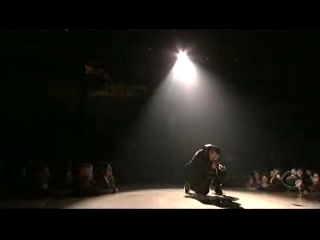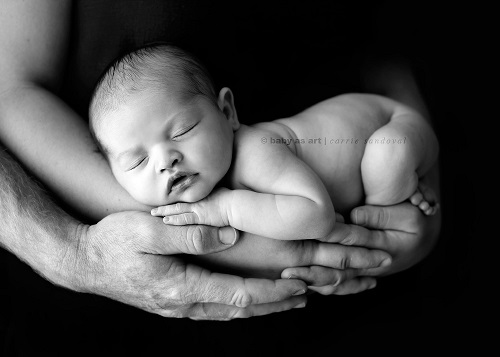In the seventh century CE, the Islamic faith was hailed for its institutional respect and dedication to our mothers. Islam’s founder, Muhammad ibn Abdullah (pbuh) ordered his followers to heed and obey their matriarchs, and several of his wives and daughters and granddaughters would be hailed as “Mothers of the Faithful.” “To say even “oof” to your mother,” chided the Prophet Muhammad, “is a sin.”
“In our mothers do we trust.”
-Some brave soul, somewhere.
Kanye West Hey Mama Live Grammy Awards 2008… by DEXTER774
In the seventh century CE, the Islamic faith was hailed for its institutional respect and dedication to our mothers. Islam’s founder, Muhammad ibn Abdullah (pbuh) ordered his followers to heed and obey their matriarchs, and several of his wives and daughters and granddaughters would be hailed as “Mothers of the Faithful.” “To say even “oof” to your mother,” chided the Prophet Muhammad, “is a sin.”
And yet since those days of pride and honor for our women, we have forgotten our duty as sons and brothers of the fairer sex. Horrid stories of gang-rape, female genital mutilation, and false adultery charges (a capital crime under Sharia) fill the news and air from dawn till dusk–the very times of the day our mothers need us most, and when we need them the most, too. How far have we fallen? Below we talk in very different, and very unvarnished voices to examine what each of our mothers did for us as men, as boys, and for our faith. Here’s to you, Moms: The Ultimate Muslimah Heroine.
***
I remember standing tall, all four-feet five inches, in front of Mummy. My face was as red one of her favorite sweaters, and once again I complained about being told “no” to some kid’s toy, video game, or other tchotchke; you know how important it was by the fact that I have no idea what it was. She stood patiently, giving me time to vent all my frustration and disappointment. As every good brat would, I used whining, bargaining, and even insults about her not caring about me. In the face of these histrionics, she looked me in the eye and said, “be flexible.”
“Great,” I thought, “here is the millionth time she’s used this line to calm me down.” Yet mysteriously, it did. When I was younger, I associated her trademark phrase with denial and disappointment. If we couldn’t go on a family vacation, the tickets to some new movie had been sold out, or having to go to overnight prayers and sermons at the masjid when my friends were hanging out, my mother responded by encouraging me to take these kid crises in stride. I just couldn’t help rebelling against her words, digging my heels into the floor—a monument to my own unbending attitude towards the challenges of childhood.
Something changed when my sister and I were both in our teenage years. I either felt ineffective at school, didn’t make enough money at my summer job, or wondered exactly who I wanted to be—there were alternating sources of internal tension. I was in a rush to grow up fast, and rarely talked to either of my parents about adulthood. But as I slowly learned, my mother had developed her sense of equanimity in the face of challenges of her own life.
My grandmother had seven children; Mummy was the first. They grew up in close quarters in a Karachi apartment. As an older sibling, she became a third parental presence in the house at a very young age. She made sure her siblings were behaving, doing their schoolwork, and broke up arguments. My mother had managed to be a precocious student with everything else occupying. She had really enjoyed her classes in college and wanted to continue postgraduate education, most likely in psychology. A number of factors, including family discouragement, led her to abandon that dream.
Flash forward a little over a decade, and she and my father were raising two young children on the North Side of Chicago. Mom would check in on me as I struggled to focus on schoolwork. She gave me some memorable talks after I hit my older sister in anger, or stole a candy from the grocery store. And she managed to stay a steady presence in our little worlds as she worked in the airline industry—not the least stressful field to work in with children to worry about.
I remember Thursday evenings at our condo, and then the house we moved into; my mother lit incense, letting smoky trails waft in front of her as she quietly made dua. She would call us to join her afterward, and offer us dates or candies as niaz. Her approach to Islam has always been deeply spiritual; she never forced us to pray, or talked in terms of “good Muslim, bad Muslim” when trying to instill ethics. Rather, she was a visible example of how cultivating a deeper relationship with God could give people a great amount of emotional strength and flexibility.
Looking back on it all, I realize the effects of my mother’s philosophy on my own approach to life. I remember her words and her example when dealing with the larger questions of my life. As I study some aspect of Islam that perplexes me, or have had to make hard choices about career, friends, or my own religious life, the only constant has been change, and dealing with those transitions has given rise to its own battles. That short kid, making tall noise about not getting what he wanted, had found heaven at his mother’s feet—he just hadn’t recognized it. All the while, she shared a life lesson that was easy to hear but hard to internalize. Now I know why Mummy always told us being flexible was a motto to live by.
***
Goldie hits the club at 11:30 PM on a Saturday night. She strides up to the bar, confident and ready to order for her and their friends sitting at the table. “One Pina Colada,” she orders herself. “But make sure it’s a virgin,” she continues. “I’m a Muslim.”
If any readers were wondering: Goldie is my 40-something hip mom whose style and attitude make it almost unimaginable to many that she is a mom of three, and the most devout Muslim her age I have ever seen. To give you an idea of what I mean, she hasn’t willfully missed a prayer since I was about 16 recites tasbihs, wazeefahs, and Surah Ya-Seen every single morning, right after Fajr (around 5:15 AM these days). When the water heater in our home was out, she made wudu in the dead of winter (the worst any of us have seen) with water from the frigid tap. “God comes first,” she says. “And after that, your mother.”
It is from my mother I get my sense of public service and absolute conviction to social justice. A sayyid, or descendant of the prophet Muhammad (pbuh), Karbala’s legacy in our household is personal, as is every instance of injustice against those who cannot stand up for themselves. “Never forget: help the helpless.” Mother took personal pains to teach me Islamic ethics as a child. Loyalty, dignity in defeat, and an unshakable dedication to the Islamic faith are all products of her endless instruction to me as a child, and even now as an adult.
Rarely has such a mom been able to keep it together so well. She never lets on that either of my siblings are special needs, and she takes offense to the idea that they’re handicapped in anyway. “They’re smarter than you are, at least they wake up on time, uloo ke pathay (‘owl’s leg’, but really ‘village idiot’). Even after being told my younger brother didn’t have to pray or recite Qur’an since he was autistic, she taught him several surahs and the ayat-ul-kursi by sheer will of force—a feat nearly all had deemed miraculous if not impossible.
Mother is for all intents and purposes the a Muslim Rose Kennedy, drilling her children to be their best with an intensity and vision that few could dare to match. When I fail to live up to her impeccable standards, a swift slap and a Hindustani insult are routine. But, on the few occasions I impress her, my mom is the best friend you could ever have.
She’s also the trendsetter amongst her friends–both younger and older. Nearly all people in her many, many different “crews” accept her fashion advice. Tiring of “Desi” styles, for my parents’ twenty-fifth anniversary this year, mother decided the event should be western formal, and save for a few aunties who thought that referred to the type of food and not their clothing, everyone complied.
What my mother did for me then, was create a world where Islam, modernity, and spirituality were not only possible, but harmonious. Never in my life did I feel that my faith was an obstacle to being a common American. My mother imbued me daily with love for God, respect for His law, and thankfulness for His mercy for having a social life (no drinking, involved).
I do not mean to brag on and on about my mother, yet I have to. For better and even better, my mother is a friend and role model few children have, and few would be able to appreciate. Her balance between modernity and tradition and between faith and secular life make her second in my eyes to no-one. Verily, as the Prophet once said, paradise beneath our mothers’ feet. I hope to give mine a good foot rub soon after writing this. Happy Mother’s Day.
***
In writing these odes to our moms, as young Muslim men, we are again reminded of how seldom we reflect on the staggering degree to which our mothers contribute to the vibrancy of the Muslim community. Ever more rarely does our society take the time to realize just how important our mothers are to laying and strengthening the foundations to who we are inside. Last month’s devastating verdict in Pakistan in Mukhtar Mai’s gang-rape case, and 2009’s stirring (supposedly based on true life) movie The Stoning of Soraya M. where two young sons are turned against their mother by a corrupt mullah and father, and then assist in her stoning, shows us how far “Muslims” today have forgotten the rights and honors accorded to the people who bring us into this world.
As Muslim men, our half of the community has failed in its responsibility to support and empower women. We have goaded them to accept back doors to our mosques, but demanded they teach us how to bathe so that us men may pray there (wudu). We harshly judge womens’ morality while many of us sexually objectify them at parties and bars well out of sight of their veiled hearts and eyes. And yet, we say with a straight face: our mothers are our guiders to paradise. Our sisters are our friends.
Muslim men must stand up for our mothers and the mothers of our children. Muslim men across the world forget that the women we mistreat through lack of communication at home or through active diminution of our life partners and friends, we are cheapening the value of all sentient life, and specifically the temporal givers of life: our mothers. We wish our mothers, and all good mothers a happy Mother’s Day, belated. (We’re men: we can’t always be timely)
Abbas Jaffer is a Contributing Editor to Altmuslimah. Hamza Khan is a writer based in the Washington, DC area.





